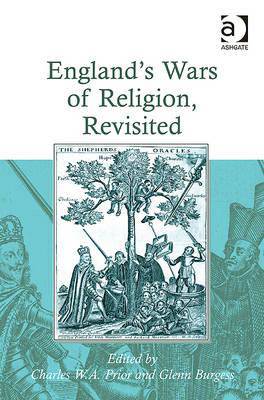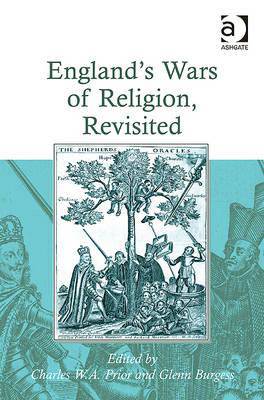
- Retrait gratuit dans votre magasin Club
- 7.000.000 titres dans notre catalogue
- Payer en toute sécurité
- Toujours un magasin près de chez vous
- Retrait gratuit dans votre magasin Club
- 7.000.0000 titres dans notre catalogue
- Payer en toute sécurité
- Toujours un magasin près de chez vous
Description
The causes and nature of the civil wars that gripped the British Isles in the mid-seventeenth century remain one of the most studied yet least understood historical conundrums. Religion, politics, economics and affairs local, national and international, all collided to fuel a conflict that has posed difficult questions both for contemporaries and later historians. Were the events of the 1640s and 50s the first stirrings of modern political consciousness, or, as John Morrill suggested, wars of religion? This collection revisits the debate with a series of essays which explore the implications of John Morrill's suggestion that the English Civil War should be regarded as a war of religion. This process of reflection constitutes the central theme, and the collection as a whole seeks to address the shortcomings of what have come to be the dominant interpretations of the civil wars, especially those that see them as secular phenomena, waged in order to destroy monarchy and religion at a stroke. Instead, a number of chapters present a portrait of political thought that is defined by a closer integration of secular and religious law and addresses problems arising from the clash of confessional and political loyalties. In so doing the volume underlines the extent to which the dispute over the constitution took place within a political culture comprised of many elements of fundamental agreement, and this perspective offers a richer and more nuanced readings of some of the period's central figures, and draws firmer links between the crisis at the centre and its manifestation in the localities.
Spécifications
Parties prenantes
- Auteur(s) :
- Editeur:
Contenu
- Nombre de pages :
- 350
- Langue:
- Anglais
Caractéristiques
- EAN:
- 9781409419730
- Date de parution :
- 28-07-11
- Format:
- Livre relié
- Format numérique:
- Genaaid
- Dimensions :
- 156 mm x 234 mm
- Poids :
- 666 g

Les avis
Nous publions uniquement les avis qui respectent les conditions requises. Consultez nos conditions pour les avis.






